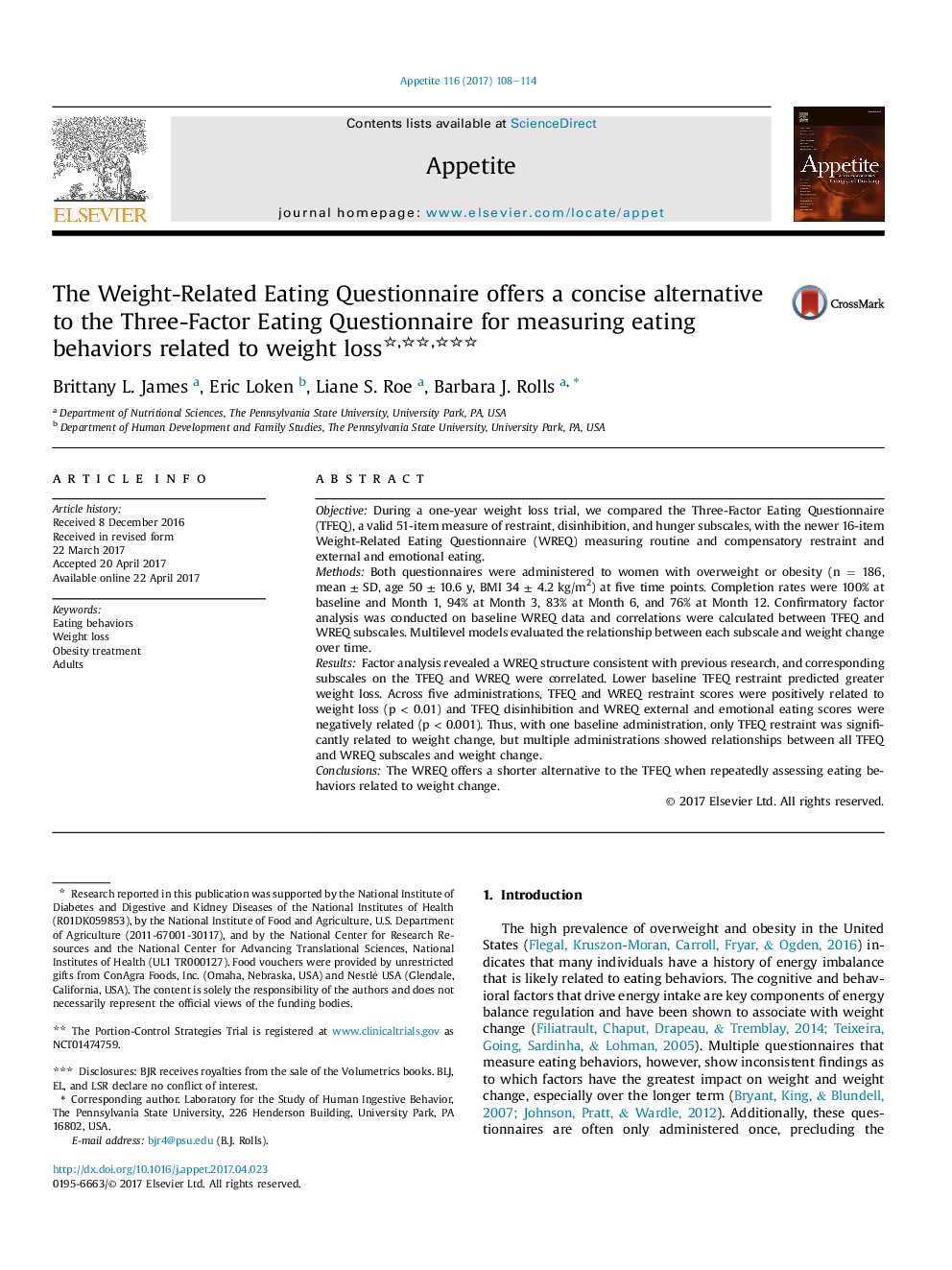| Article ID | Journal | Published Year | Pages | File Type |
|---|---|---|---|---|
| 5043988 | Appetite | 2017 | 7 Pages |
ObjectiveDuring a one-year weight loss trial, we compared the Three-Factor Eating Questionnaire (TFEQ), a valid 51-item measure of restraint, disinhibition, and hunger subscales, with the newer 16-item Weight-Related Eating Questionnaire (WREQ) measuring routine and compensatory restraint and external and emotional eating.MethodsBoth questionnaires were administered to women with overweight or obesity (n = 186, mean ± SD, age 50 ± 10.6 y, BMI 34 ± 4.2 kg/m2) at five time points. Completion rates were 100% at baseline and Month 1, 94% at Month 3, 83% at Month 6, and 76% at Month 12. Confirmatory factor analysis was conducted on baseline WREQ data and correlations were calculated between TFEQ and WREQ subscales. Multilevel models evaluated the relationship between each subscale and weight change over time.ResultsFactor analysis revealed a WREQ structure consistent with previous research, and corresponding subscales on the TFEQ and WREQ were correlated. Lower baseline TFEQ restraint predicted greater weight loss. Across five administrations, TFEQ and WREQ restraint scores were positively related to weight loss (p < 0.01) and TFEQ disinhibition and WREQ external and emotional eating scores were negatively related (p < 0.001). Thus, with one baseline administration, only TFEQ restraint was significantly related to weight change, but multiple administrations showed relationships between all TFEQ and WREQ subscales and weight change.ConclusionsThe WREQ offers a shorter alternative to the TFEQ when repeatedly assessing eating behaviors related to weight change.
